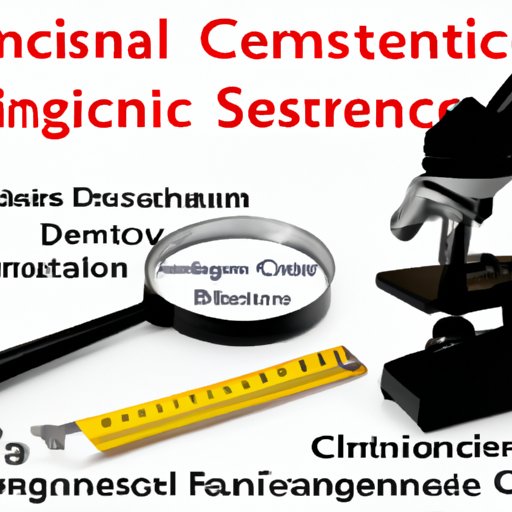Introduction
A forensic scientist is a professional who applies scientific methods and techniques to the investigation of criminal activities. They work in collaboration with law enforcement agencies and other criminal justice professionals to collect, analyze, and interpret physical evidence that can be used in criminal cases. Becoming a forensic scientist requires specialized knowledge and skills, as well as a commitment to ethical principles.
Educational Requirements and Certifications
In order to become a forensic scientist, individuals must first meet certain educational requirements. A bachelor’s degree in forensic science or a related field such as biology, chemistry, or criminal justice is typically required. Master’s and doctoral degrees may also be necessary depending on the type of position and specialization desired. Additionally, some states may require licensing or certification for certain types of forensic scientists.

Responsibilities of a Forensic Scientist
The primary responsibility of a forensic scientist is to collect, preserve, and analyze evidence for use in criminal investigations and court proceedings. This includes examining physical evidence such as fingerprints, DNA, and ballistic evidence, as well as digital evidence such as computer files and emails. Additionally, forensic scientists may be called upon to testify in court as an expert witness and present their findings in a clear and concise manner. They may also be asked to write reports and provide expert opinions.

Types of Evidence Examined by a Forensic Scientist
Forensic scientists are responsible for examining a wide range of evidence, including biological, physical, and digital evidence. Biological evidence includes blood, hair, fibers, and other bodily fluids. Physical evidence includes items such as weapons, clothing, and tools. Digital evidence includes computer files, emails, and other data stored on electronic devices. Each type of evidence must be examined carefully and analyzed using the appropriate scientific methods.

Steps Involved in Conducting a Forensic Investigation
The steps involved in conducting a forensic investigation depend on the type of case being investigated. Generally speaking, the process begins with identifying and collecting evidence, followed by analyzing and interpreting the evidence. Once the evidence has been analyzed and interpreted, it is presented in court as part of the prosecution’s case. The forensic scientist must be able to explain the evidence clearly and accurately in order for it to be admissible in court.
Ethical Considerations for Forensic Scientists
Forensic scientists must adhere to certain ethical principles in order to maintain the integrity of the evidence and ensure justice is served. This includes maintaining impartiality and objectivity, keeping evidence secure and confidential, and avoiding conflicts of interest. According to a study published in the Journal of Forensic Science, “Forensic scientists must strive for excellence in their field and remain dedicated to the pursuit of truth and justice.”
Conclusion
Becoming a forensic scientist requires a commitment to education, training, and ethical principles. It is a challenging but rewarding career path for those interested in applying scientific methods and techniques to the investigation of criminal activities. With the right qualifications and dedication, individuals can pursue a successful career in forensic science.
(Note: Is this article not meeting your expectations? Do you have knowledge or insights to share? Unlock new opportunities and expand your reach by joining our authors team. Click Registration to join us and share your expertise with our readers.)
